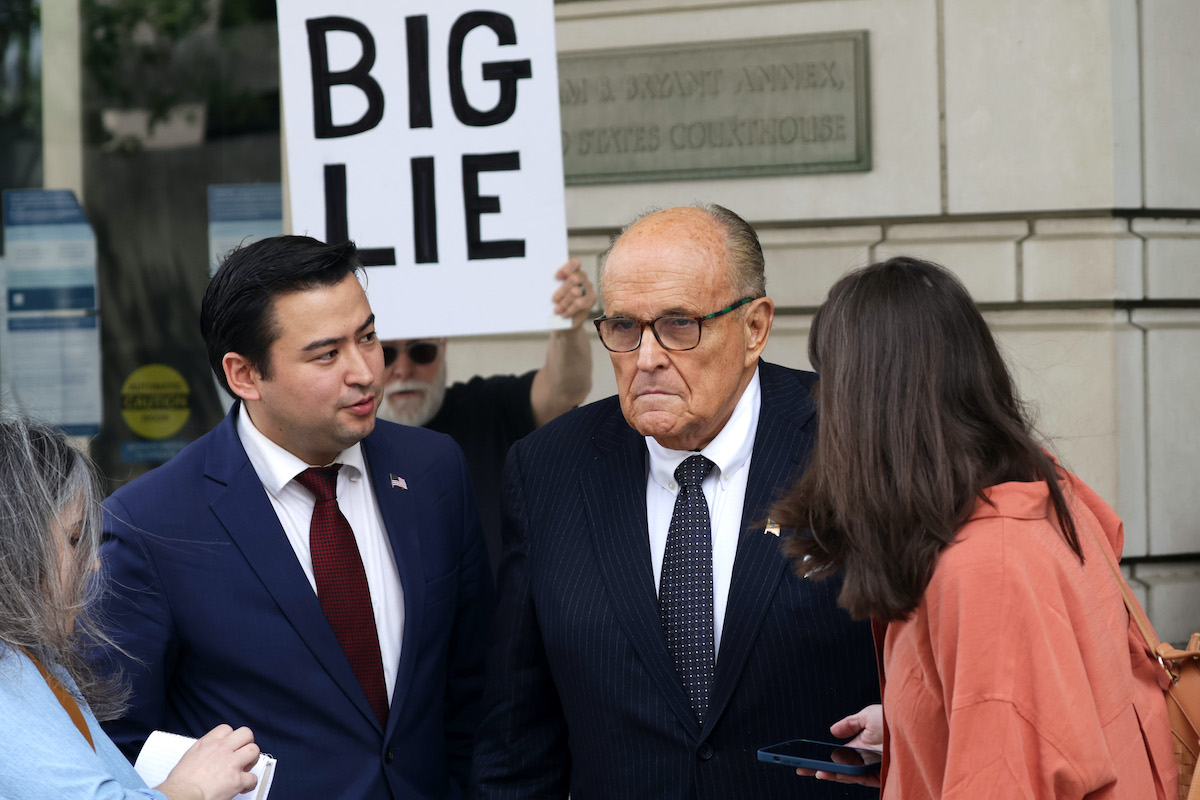In 2021, two Georgia election workers—mother and daughter Ruby Freeman and Wandrea “Shaye” Moss—filed suit against former Trump lawyer Rudy Giuliani for defamation after Giuliani publicly shared a video aiming to show the two women mishandling ballots.
Last week, new court documents were released showing that Giuliani did not plead guilty, but that he concedes he made false and defamatory statements.
Now, you might be asking: In a defamation suit, isn’t admitting to making false and defamatory statements the same thing as admitting guilt?
I’m asking the same question.
On Tuesday of this week, Trump was indicted (yet again) on similar charges related to the attempt to overturn the 2020 election. The court documents clearly referred to Giuliani—listed as an un-named co-conspirator but with a very identifiable description—claiming he “was willing to spread knowingly false claims and pursue strategies that the Defendant’s 2020 re-election campaign attorneys would not.”
In a Newsmax interview just after the indictment dropped, Giuliani became enraged, claiming that Trump’s First Amendment rights had been violated.
So, perhaps Giuliani believes that the First Amendment will protect him, as well. He indicated as much in that no-contest statement, in which he does not deny his actions were defamatory, false, or done with “intentional infliction of emotional distress,” but does maintain that his statements and actions are “constitutionally protected.”
As a reminder, the First Amendment reads: “Congress shall make no law respecting an establishment of religion, or prohibiting the free exercise thereof; or abridging the freedom of speech, or of the press; or the right of the people peaceably to assemble, and to petition the Government for a redress of grievances.”
The last clause—petitioning the government for a redress of grievances — is exactly what special counsel Jack Smith and his team did when indicting the former president.
And “freedom of speech” does not protect against defamation (see New York Times Co. v. Sullivan, 1964).
Giuliani is not only facing the Freeman-Moss charges and the fallout of the indictment, but he is also looking at possible disbarment in both New York and Washington, D.C.—also for making false statements about the 2020 election.
As the events of the 2020 election begin to catch up with him, Giuliani is looking at a barrage of litigation and clinging to the First Amendment, which will likely fail to save him.
(featured image: Alex Wong/Getty Images)










Published: Aug 2, 2023 11:29 am